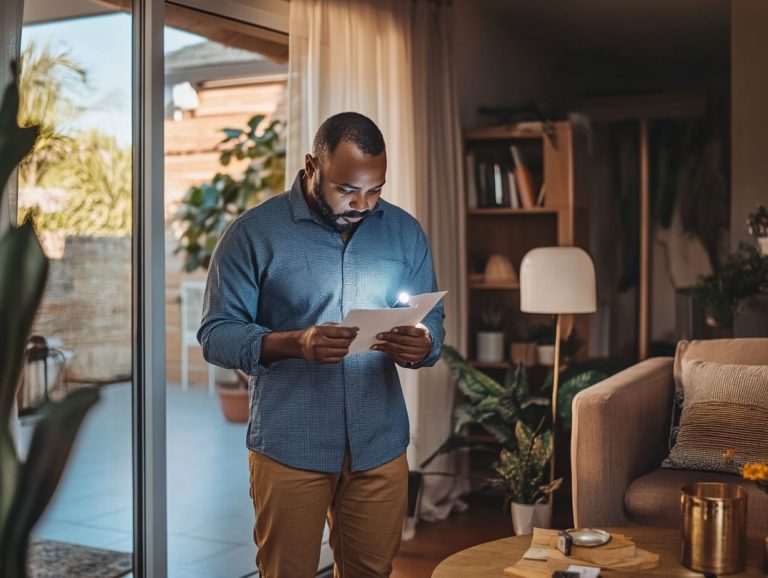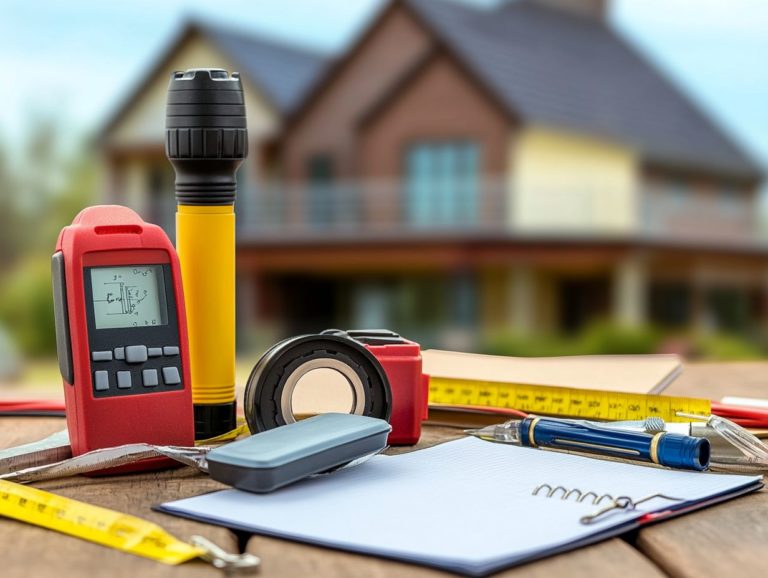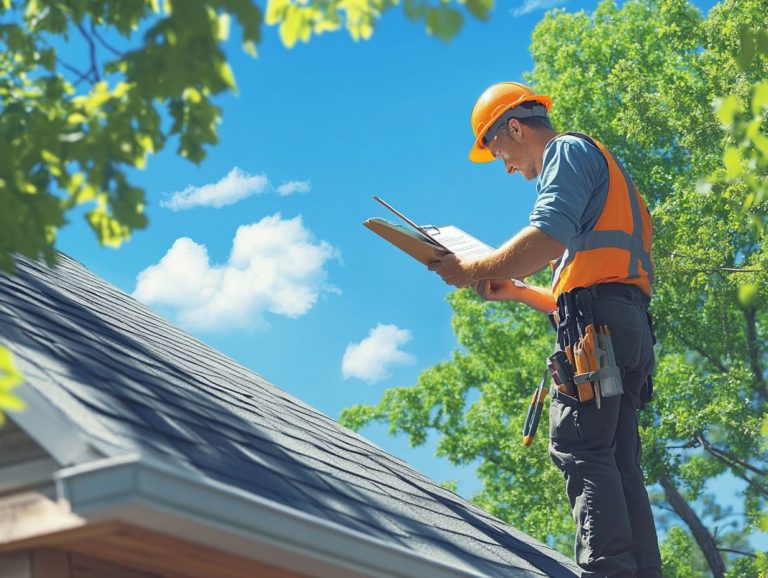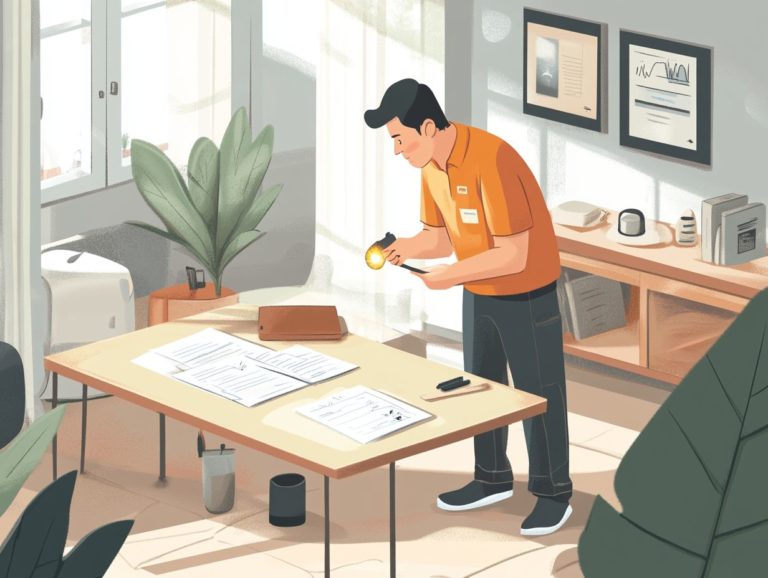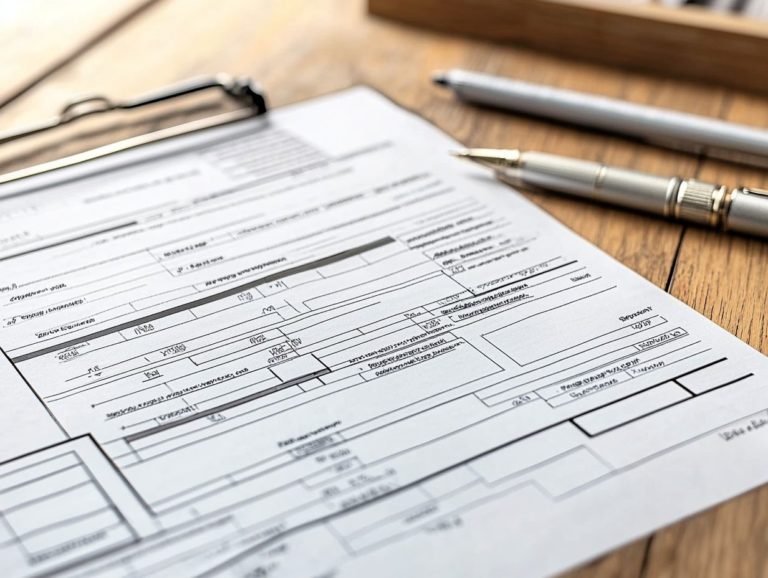How to Ensure a Fair Home Inspection
Buying a home is one of the most significant investments you will ever make. Therefore, a thorough home inspection is essential. This vital step uncovers potential problems, empowering you to make informed decisions throughout the buying process.
This guide delves into the importance of home inspections, offers insights on selecting a qualified inspector, and outlines the preparation needed for a successful inspection. You ll discover what to expect during the inspection itself and learn how to address any issues that may arise.
Get ready to navigate this essential milestone in your home-buying journey with confidence!
Contents
Key Takeaways:
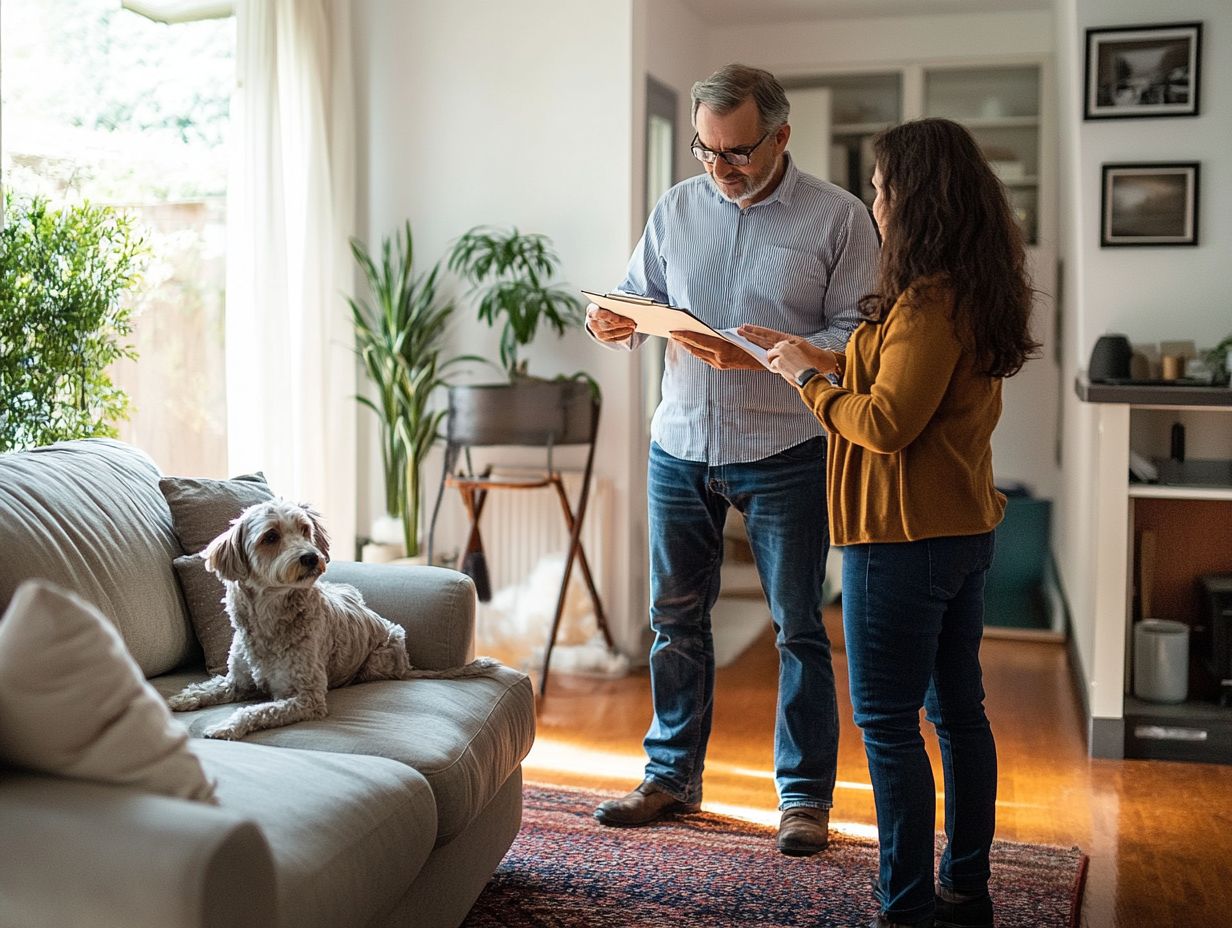
- Choose a qualified home inspector with the proper credentials and experience to ensure a fair and thorough inspection.
- Prepare for the inspection by clearing access to all areas of the home and providing necessary documents.
- Be present during the inspection and ask questions to understand the findings and potential issues.
- Negotiate with the seller to address any concerns before finalizing the home purchase.
Importance of a Home Inspection
A home inspection is a crucial component of your real estate journey. It offers a thorough understanding of the property’s condition before you seal the deal. This process highlights major defects and assesses critical systems like electrical work, plumbing, and heating and cooling systems.
With a detailed inspection report in hand, you can make informed decisions and negotiate seller disclosures with confidence. If you’re selling, consider conducting a pre-listing inspection to streamline the process, reassuring buyers and potentially boosting your property s value.
Why a Home Inspection is Necessary
A home inspection is essential for every homebuyer; don’t miss this opportunity to protect your investment! To make the most of this process, check out these tips for a successful home inspection day. It reveals the true condition of the property and ensures you are fully aware of any potential issues before making a commitment.
This thorough examination uncovers hidden defects that might escape notice during a casual walkthrough, such as problems with the roof, plumbing, or electrical systems. You ll also gain insights into safety concerns, such as the functionality of carbon monoxide and smoke detectors, safeguarding future occupants.
The detailed inspection report becomes an invaluable asset during negotiations, giving you the power to make informed decisions or request necessary repairs from the seller. While sellers often provide disclosures regarding property conditions, these don t always cover every concern. Thus, an inspection adds an important layer of assurance, equipping you to navigate your home-buying journey with confidence.
Choosing a Qualified Home Inspector
Selecting a qualified home inspector is crucial for both home buyers and sellers. The quality of the inspection can profoundly influence the home selling process and future property maintenance.
You ll want a professional home inspector who possesses the right certifications, ample experience, and a thorough understanding of the various systems within a property like electrical work, plumbing, roofing, and heating and cooling systems.
By choosing a reputable inspector, you ensure that you receive a detailed inspection report that accurately reflects the property’s condition. This knowledge empowers you to make informed decisions, especially when you follow how to prepare for a home inspection.
Key Factors to Consider
When choosing a home inspector, consider several key factors: the inspector’s certifications, experience, and the thoroughness of their inspection report. Additionally, you may find it helpful to review how to prepare your home for an inspection to ensure everything goes smoothly. Make sure the report addresses both minor issues and major defects.
Additionally, evaluating the inspector’s understanding of local building codes is crucial. This expertise ensures compliance and brings to light any potential safety concerns. An adept inspector should have a keen eye for spotting hidden problems, like leaks or structural weaknesses.
Effective communication skills are also essential. You need an inspector who can clearly articulate their findings and their implications. A detailed inspection report that covers all aspects of the property including heating and cooling systems, plumbing conditions, and overall structural integrity will provide you with invaluable insights, giving you the power to make informed decisions throughout your home-buying journey.
Preparing for the Inspection

Preparing for a home inspection requires you to take several key steps, whether you’re buying or selling a property. Following this guide to prepare your home for a successful inspection ensures the process goes smoothly and effectively.
As a seller, you’ll want to focus on cleaning and decluttering your space. Make sure to provide clear access to critical inspection points like the attic, basement, electrical panels, and HVAC systems.
Understanding seller disclosure means sharing known issues with the property. This instills confidence in buyers regarding the property’s condition.
Thoughtful preparation elevates the inspection experience. It also lays the groundwork for effective home maintenance strategies that will follow.
Steps to Take Before the Inspector Arrives
Make sure to prepare before the inspector arrives! It’s essential for both sellers and buyers to take proactive steps by learning how to prepare for a successful home inspection to ensure that the inspection goes off without a hitch.
This means providing easy access to key areas of the home, such as the attic and basement. Checking that all appliances are operational before the inspection is crucial it helps prevent unexpected surprises.
Take the time to review seller disclosures thoroughly. This can clarify what to expect and foster trust between both parties.
Addressing any visible minor issues ahead of time, like leaky faucets or squeaky doors, is vital. Small fixes improve the inspection outcome, making the entire transaction smoother and less stressful.
During the Inspection
During the home inspection, you have the unique opportunity to witness the process firsthand. Engage directly with the home inspector.
This expert is pivotal in revealing the property’s true condition. Ask questions to gain valuable insights about your potential new home.
What to Expect and How to Participate
As a home buyer, you can anticipate a thorough walkthrough of the property during the inspection. The home inspector will meticulously assess various systems and pinpoint any findings that could influence the property s value.
This thorough evaluation focuses on vital areas that matter to you, starting with the roof’s condition. Ensure there are no leaks or missing shingles, as these could lead to substantial repair costs down the line.
The inspector will also scrutinize the foundation for cracks or settling issues, which can significantly impact the home s overall stability.
The inspector will check plumbing and electrical systems closely. This ensures they are safe and functional. It s wise for you to take notes and ask questions throughout this process.
This way, you ll fully understand the implications of any issues discovered, giving you the power to make informed decisions about your investment.
Addressing Any Issues Found
Act quickly on the issues found during your inspection! It’s a crucial step in the buying journey.
This process gives you the power to negotiate effectively with the seller. Leverage the insights provided in the inspection report to your advantage.
Negotiating with the Seller

When you re negotiating with the seller after a home inspection, it s essential to leverage the insights from the inspection report. Tackle any significant defects or concerns that could influence your decision to move forward with the purchase.
As you navigate this process, prioritize the issues by evaluating the severity of each defect along with the estimated repair costs. Frame your requests in relation to how these deficiencies affect your experience as a buyer think safety, comfort, and future expenses.
Maintaining open communication with the seller is crucial. Actively discussing potential solutions helps establish a collaborative atmosphere.
Being well-informed about any seller disclosures enriches this dialogue. This provides you with context and clarity in negotiations so that everyone is on the same page regarding the property’s history and any past issues.
Ensuring a Fair and Thorough Inspection
To secure a comprehensive and equitable home inspection, you must take an active role in the process by following tips on how to get the most out of your home inspection.
Selecting a reputable professional home inspector is essential. They possess the expertise to identify both minor concerns and significant defects with precision, especially if you know how to prepare for a home inspection.
Your involvement ensures that no detail is overlooked, providing you with the insights necessary for knowledge-based decision making.
Don t skip the inspection process it’s key to making a confident investment!
Tips for a Successful Inspection Process
For home buyers, successful home inspections rely on clear communication with the inspector. It’s also helpful to understand how to prepare for your home inspection and be aware of critical findings that might affect your buying choice.
Prepare thoughtful questions about the property s condition. Reviewing seller disclosures can reveal vital insights into past issues or repairs.
Understanding each finding helps you negotiate and plan for future investments. Engage with the inspector during the walkthrough for a clearer view of the home’s value and maintenance needs.
Frequently Asked Questions
What is a home inspection and why is it important?
A home inspection is a complete check of a property’s structure and systems, such as the roof, plumbing, and electrical systems. It s important because it shows any potential issues that could affect safety and value.
How do I find a reputable home inspector?

To ensure a fair inspection, hire a qualified home inspector. You can make the most of your home inspection by asking friends for recommendations, reading online reviews, and checking their certifications.
Can I be present during the home inspection?
Yes, you should be present during the inspection. It allows you to ask questions and address concerns directly with the inspector.
What can I do to prepare for a home inspection?
Before the inspection, clear clutter and provide easy access to all home areas, including attics and basements. Additionally, it’s helpful to gather important documents like permits and maintenance records, as outlined in our guide on how to prepare for a home inspection as a buyer.
What should I do if the home inspector finds issues?
If issues are found, stay calm and gather information. Discuss findings with the inspector and seek estimates for repairs if needed.
What if I’m not satisfied with the home inspection?
If you’re not satisfied, request a re-inspection or negotiate for repairs or a price reduction. You can also seek a second opinion from another inspector.

